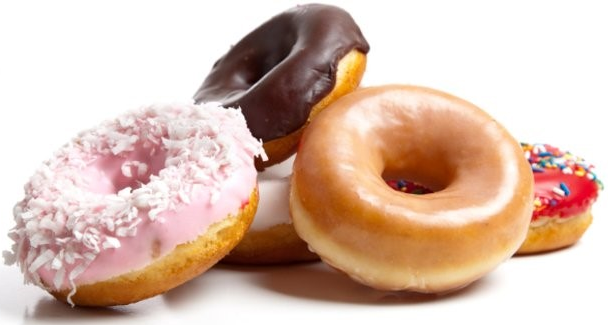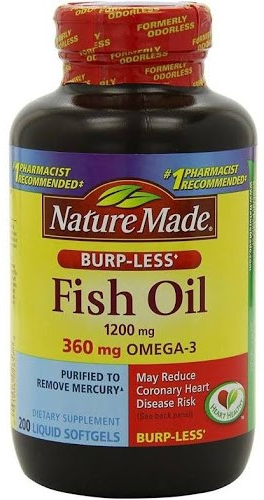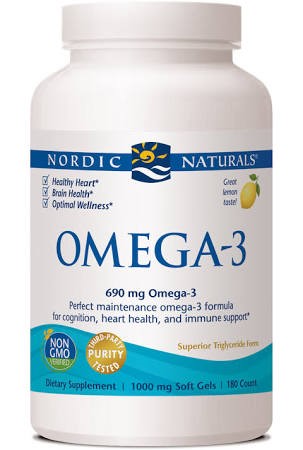| Follow us on Twitter to receive nutrition & health tips as well as information about upcoming events! 
|
|
Nutrition Energy
In the News!
|
Join Our List
 |
| Become a fan! |
| 
|
|
|
|
What Can I Do About Migranes?
|
If you suffer from migraines, I need only to say (or for you to read) the word, and the terrible symptoms can almost be felt on the spot. The pounding head, the inability to think or concentrate. The sensitivity to noise and/or light and/or smell and the nausea that can accompany them and last for hours...to days, can certainly be debilitating. If you just knew what to do, you would likely do anything to figure out how to prevent them in the first place...right? Well, there is no one thing to eat or to avoid eating that works for everyone, but there certainly are groups of foods and situations that you will want to experiment with reducing/eliminating to see if they make a big difference for you. On the flip side, there are foods/situations you will want to increase as well.
Top Foods To AVOID if you suffer from Migraines
- Aged Cheese contain tyramine, which can trigger migraines. The older the cheese the worse of a migraine trigger it will tend to be. Avoid Swiss, Cheddar, Gouda and Blue cheese for a while and see if that makes a difference.
- The Artificial Sweetener Aspartame is another well known migraine trigger. Check packages carefully and avoid this ingredient at all costs (just put the food down and choose another naturally sweetened food).
- MSG is another known migraine trigger to be avoided. Get in the habit of asking whether restaurants use MSG-and then tell them you need to avoid that ingredient.
- Red Wine and over-consumption of alcohol in general can be a double whammy! Red wine is high in the migraine trigger tyramine, and can also lead to dehydration (another migraine trigger). Limit alcohol consumption and be sure to hydrate as well.
- Excessive Caffeine Consumption (even 2-3 cups daily) can be a trigger, and so can the rebound headache you get post caffeine consumption.
- Preserved Meats including deli meats contain nitrates-another known migraine trigger-again, due to their tyramine content. Stick to naturally roasted, baked or grilled meats instead.
- Yeast Leavened Breads can also trigger migraines. This applies to all leavened breads-including pizza. Avoid them for 1-2 weeks and see if your symptoms decrease/improve.
- Bananas may be high in potassium, and otherwise a healthy choice, but for migraine sufferers they should be avoided due to their high tyramine and histamine content.
Top Foods To INCLUDE if you suffer from Migraines
- Dark Green Leafy Veggies. These nutritional powerhouse foods are high in the B vitamins B2 and B6, which can help prevent migraines. Dark veggies to try include beet greens, kale, arugula, spinach-the darker the better!
- Omega-3 Fatty Acids can also help by decreasing inflammation. Try fatty fish (including salmon) as well as nuts and seeds, especially sunflower, flax, chia and sesame seeds which are high in vitamin E and magnesium as well.
- Almonds contain salicin which can act as a natural pain killer. Try adding a handful of these taste nuts to your oatmeal, salad or afternoon snack.
- Peppermint and Ginger Teas
- Grass Fed Beef is something you can continue to enjoy. Get rid of the processed meat and bring on the grass fed meat instead.
- Whole Grains are also high in B-vitamins, and can help reduce migraines. Yet another reason to switch (most of) your breads and gains over from white to 100% whole wheat.
Other Non-Nutritional Migraine Tips
- Be mindful of perfumes and strong smells and keep notes of any that seem to be present around migraines-then avoid them if at all possible
- Make a BIG effort to get adequate sleep. I know this one is difficult, but it will be worth it on so many levels, especially a reduction in migraines.
- Stress-reduction can be a big part of migraine reduction. Try exercise, yoga, meditation, calming music 1-2x/day even for only 10 min...anything you can do to quite the mind and reduce your stress.
- Stay hydrated! Studies show that up to 40% of headaches can be linked back to dehydration/inadequate fluid intake. Don't let it happen to you.
- Weight loss. Losing any extra weight and maintaining a healthy weight for you can also help decrease your migraine symptoms, as being overweight or obese has been linked to more frequent and/or more severe migraines.
- Finally, see if there are any particularly bright or strong lights that seem to be triggering your headaches, then do anything you can to reduce your expose to them. Change the bulbs or your location.
With all of these avoid tips there just have to be a few that will make a big difference to YOU and reduce your migraine frequency, duration or severity.
You don't have to try all of them at once. Start with 1, 2 or 3 that you suspect might be triggers for you. Make those changes for a few days or weeks, then note changes. Continue on with your experiment from there.
As you do, please feel free to reach out to us on social media to let us know how your experiment is going-we'd love to hear from you.
|
|
All About Fats! The "Good" & "Bad" Fats
|
Here at Nutrition Energy, we get a lot of questions about how to lower cholesterol or how to reduce the risks of cardiovascular disease (CVD). We also encounter athletes who are unsure about taking omega-3 supplements. As a rule of thumb, it is always good to resort to food for nutrients and fuel for the body. It is also safe to say that using and eating polyunsaturated and monounsaturated fats are better for your overall health compared to saturated fats, especially if you have heart diseases like CVD. Below, we help you identify various food sources that contain the three different types of fat. Hopefully you can incorporate more of these foods in your diet!
|
What are...
Saturated Fats?
|
What are..
Polyunsaturated Fats?
|
What are...
Monounsaturated Fats?
|
|
Typically solid at room temperature
|
Typically liquid at room temperature
|
Typically liquid at room temperature
|
Found in foods of animal origin:
* Meat/animal fat
* Dairy (butter, cream, lard, cheese, eggs)
* Confectionary & baked goods
* Coconut oil
* Palm/Palm Kernel oil
|
Found in:
* Salmon, fish oil
* Corn oil
* Sunflower oil
* Soybean oil
* Safflower oil
|
Found in:
* Nuts (peanuts, walnuts, pistachios, cashew nuts, and hazelnuts)
* Avocado
* Canola oil
* Olive oil
* Sesame Seeds
|
*Note: Avoid saturated and trans fats. Replace these fats with polyunsaturated and monounsaturated fats. Saturated fats increase both your total cholesterol and LDL levels. Polyunsaturated fats decrease your total cholesterol and LDL levels. Monounsaturated fats decrease your total cholesterol and LDL levels while increasing your HDL levels.
AVOID TRANS FATS
 Trans fat increases your LDL ("bad" cholesterol) levels and decrease your HDL ("good" cholesterol) levels
Trans fat increases your LDL ("bad" cholesterol) levels and decrease your HDL ("good" cholesterol) levels
Avoid foods that list "partially hydrogenated" oils on the food labels
These foods may include packaged foods, commercial baked goods, crackers, cookies, donuts, potato chips, and fried foods
Omega 3, 6, 9
What are they?
These are all important dietary fats that have different health benefits for your body. Omega-3 fatty acids decrease inflammation, decrease triglyceride concentrations, decrease blood clotting, decrease blood pressure, stabilize heart rhythm, and decrease risk of heart attack and stroke. Omega-6 is primarily used for energy. Omega-9 has shown to be helpful in decreasing VLDL ("bad") cholesterol.
|
Omega-3
|
|
|
|
Where is it found?
- Salmon
- Mackerel
- Sardines
- Anchovies
- Chia Seeds
- Walnuts
- Flaxseeds
|
Where is it found?
- Soybean oil
- Corn oil
- Mayonnaise
- Walnuts
- Sunflower seeds
- Almonds
- Cashew nuts
|
Where is it found?
- Olive oil
- Cashew nut oil
- Almond oil
- Avocado oil
- Peanut oil
- Almonds
- Cashews
- Walnuts
|
|
This polyunsaturated essential fatty acid is usually the least abundant of the three fats because you cannot produce it in the body.
|
This essential fatty acid is abundant in the American diet and people usually consume more than the recommended amount of this fatty acid.
|
This fatty acid is non-essential, meaning it can be produced by the body.
|
With all that said, many people will benefit by taking omega-3 supplements with the brands listed below.
However, you should always check with your doctor before taking it. Do not take these supplements if you are on any blood thinners like Heparin or Coumadin.
 Nature Made's Fish Oil 1200mg pills provide the omega-3 fatty acid alone. Each serving (2 pills) provides 720mg of omega-3. This brand also provides Krill Oil which include 114mg omega-3. These pills are coated to prevent fishy odor or taste/aftertaste. It is also suggested to take 2 soft gels daily with a meal otherwise you can ingest them all at once. It is sold anywhere from $13.00 to $31.00.
 Nordic Naturals Omega-3 soft gels provide 690mg omega-3 per serving. These pills are lemon flavored to mask the fishy taste. This brand recommends consuming two soft gels daily with food. It is sold anywhere from $15 to $37 depending on the size of the bottle. Nordic Naturals Omega-3 soft gels provide 690mg omega-3 per serving. These pills are lemon flavored to mask the fishy taste. This brand recommends consuming two soft gels daily with food. It is sold anywhere from $15 to $37 depending on the size of the bottle.
We
always recommend obtaining healthy fats from food sources that are listed above first because they have a lot of other healthy qualities too, such as being a source of fiber or protein. If you decide to supplement your diet with omega-3, again, make sure to contact your doctor before taking any of these supplements because it can increase the risk of bleeding when taken with a blood thinner.
|
|
|
A Note from Lauren...
|
The end of August means school is about to start -if it hasn't already! This time of year can be especially stressful preparing kids with new clothes and supplies, changing schedules, and balancing school work and after-school activities. All this stress can lead to headaches/migraines and high blood pressure...g
ood thing we included articles this month to help both your head and your heart!
For those who suffer from migraines, it may be difficult to avoid foods with tyramine, MSG, and nitrates. However, if the severity of the migraine lessens over time due to avoidance of these foods, then it may be worth any inconvenience!
High blood pressure and high cholesterol should not be taken lightly, as statistics show the number of people succumbing to Cardiovascular Disease is not decreasing. We've touched on nutrition for high blood pressure in the past and we know there is some confusion regarding the differences between types of fat. Some fat is good for your heart and overall health, so take some time and note what foods you need to include in your diet to help keep your body healthy!
Still confused on healthy fats and where to find them? Are you having trouble avoiding foods with nitrates or MSG (it can be difficult!)? Tweet us
@NutritionEnergy
or let us know on
Facebook
! The dietitians here at Nutrition Energy can help you create a list of foods and brands to look for or avoid when grocery shopping.
Lauren Antonucci, Director
Nutrition Energy
|
|
|